
Why green economy is so important for Belarus
In Belarus, the country that suffered most from the effects of the Chornobyl disaster and is now struggling to undergo structural transformation of the economy, it is essential to ensure sustainable growth without increasing environmental risks.
When a country develops with a focus on renewable sources of energy, sustainable transport, organic agriculture and other types of eco-innovation, this is usually referred to as a “green economy”. Both technology and the cooperation of the authorities are required in order to implement this approach to development effectively.
This, in particular, was the focus of a major EU-funded project called “Supporting the Transition to a Green Economy in the Republic of Belarus” that was completed in December 2017. More than 23 pilot initiatives have been implemented across the country over three years. In this article, we look at some of the most interesting initiatives under the project.
Organic agriculture
Organic food that is grown according to all the necessary standards is becoming a new trend in the West. These products are more difficult to grow, more expensive, and require special machinery; that is why not all farmers are willing to take the risk to go organic. It is also necessary to go through a long certification procedure (this can take up to three years), which is rather costly for a farmer.
Nevertheless, farms in the towns of Ašmiany, Valožyn, Maladziečna and Smarhoń decided to take the risk. “More and more farmers are beginning to consider moving away from extensive agriculture and go organic. It may be more profitable. Besides, there is no need for so many expensive chemicals and other synthetic fertilizers”, said Elena Ivasheuskaja, the manager of the pilot initiatives. “Farmers also understand that they don’t burn the ground, so it stays healthy.”
Thanks to the pilot initiative, the area under organic agriculture increased by 43 hectares. The selected farm has purchased special equipment to produce organic fertilizers, and has passed the necessary certification.
However, the farmers also face various challenges. “It is hard to work without governmental support. Until we have a specific law on organic agriculture, any manufacturer can say that all their produce is “organic”, no qualifications or certificates are needed. The law will create a market for organic products, producers will understand why they need certification and will be able to export their products to neighbouring countries. Currently, anyone who has a cottage in the country can say that they produce organic products” explained Ivasheuskaja.
Despite all the difficulties, progressive farmers remain interested in organic farming. “We carried out educational activities and 50 farmers came to study. Everyone asked about our recommendations for organic farming. The strongest farms start going organic”.
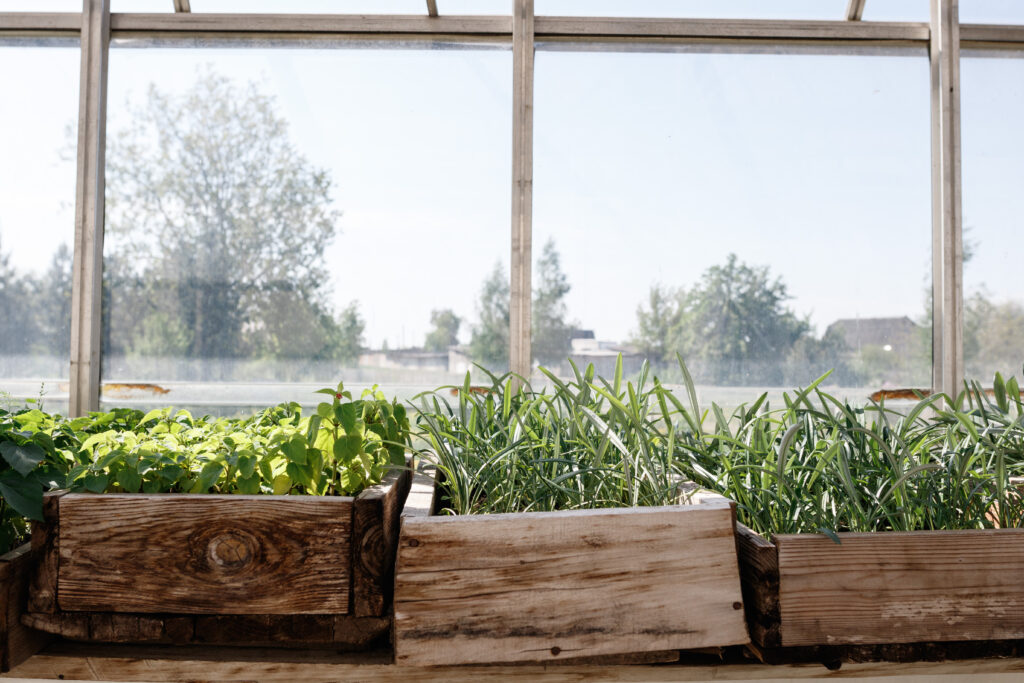 “Supporting the Transition to a Green Economy in the Republic of Belarus” project supported over 23 initiatives across Belarus
“Supporting the Transition to a Green Economy in the Republic of Belarus” project supported over 23 initiatives across Belarus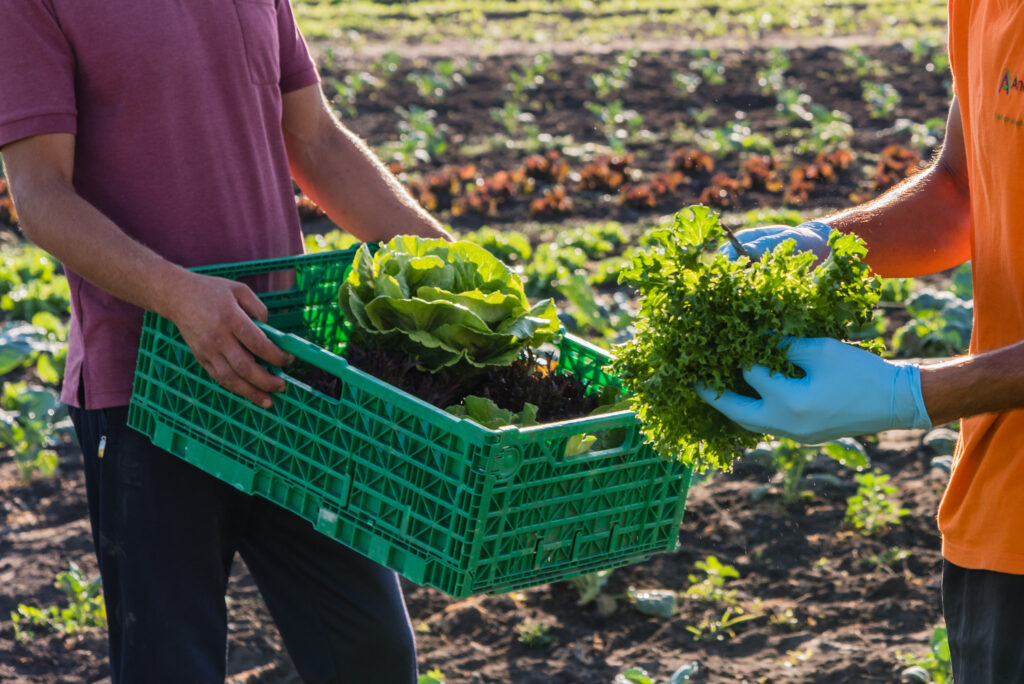 “Supporting the Transition to a Green Economy in the Republic of Belarus” project supported over 23 initiatives across Belarus
“Supporting the Transition to a Green Economy in the Republic of Belarus” project supported over 23 initiatives across Belarus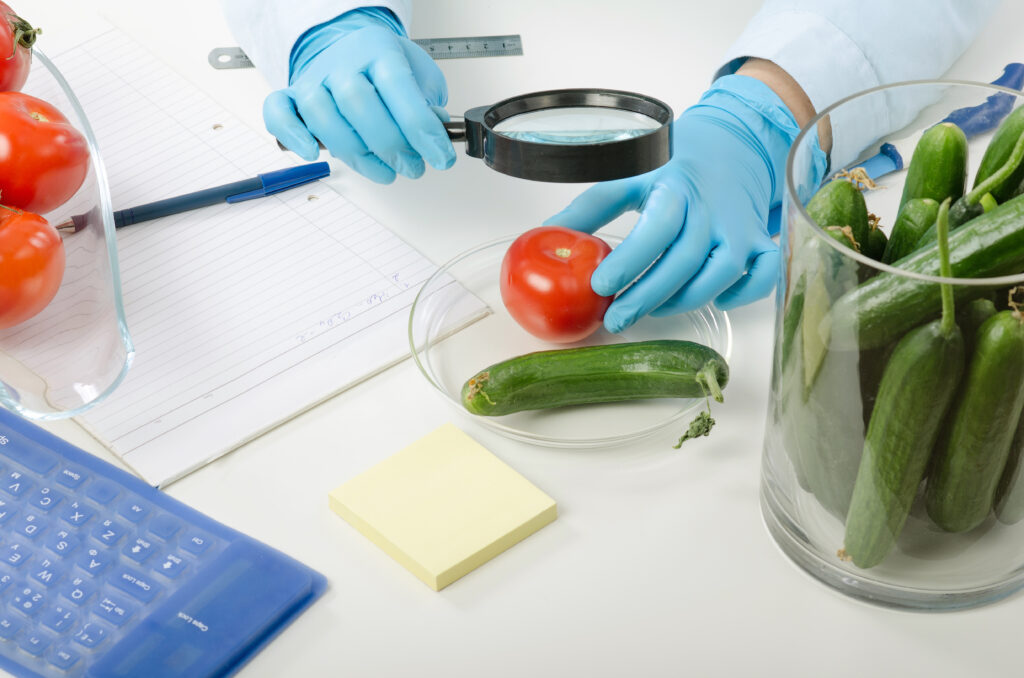 “Supporting the Transition to a Green Economy in the Republic of Belarus” project supported over 23 initiatives across Belarus. Credit: Shutterstock
“Supporting the Transition to a Green Economy in the Republic of Belarus” project supported over 23 initiatives across Belarus. Credit: Shutterstock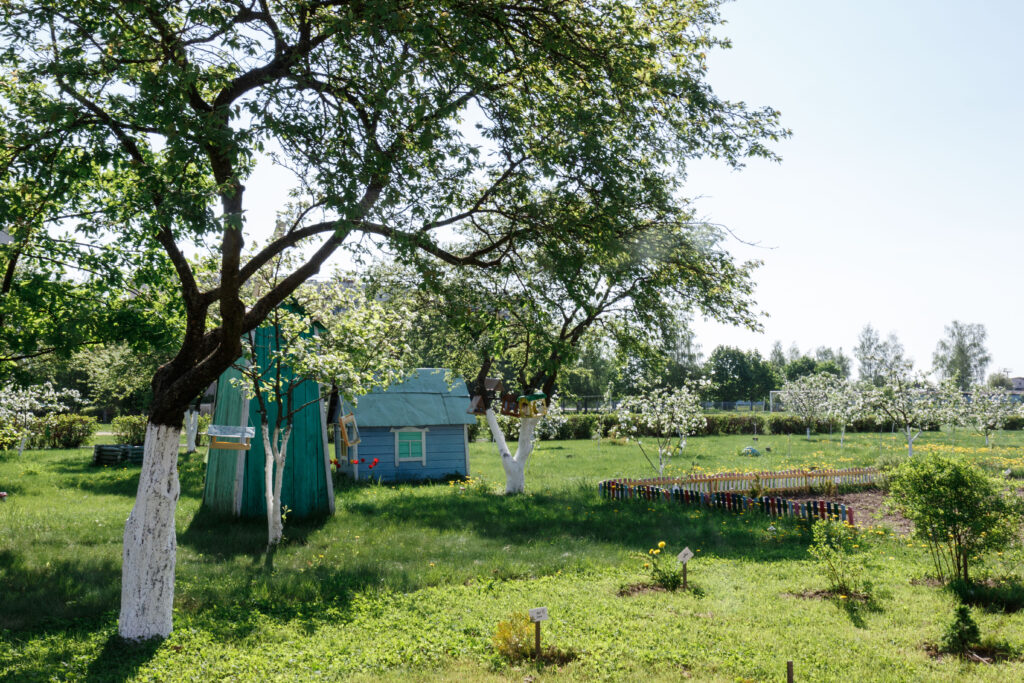 “Supporting the Transition to a Green Economy in the Republic of Belarus” project supported over 23 initiatives across Belarus
“Supporting the Transition to a Green Economy in the Republic of Belarus” project supported over 23 initiatives across Belarus
Green roofs
In cities full of concrete and asphalt and with a lack of space for trees and plants, people begin to grow plants on the roofs of the buildings. This not only makes for a beautiful development and a trendy place to chill out, but also acts as an energy efficient measure. These so-called ‘green roofs’ provide natural thermal insulation and collect rainwater so there is no need for a complex drainage system.
A high school in the town of Marjina Horka recently installed a green roof. “We had the desire to add greenery to the roof of the building for a long time. This eco-design, in general, is very popular now across the world. In addition to social, environmental and economic aspects, we pay attention to its educational aspects. We have developed a special programme in biology and ecology; students and teachers from around the district come to visit us”, said Mikhail Dubovik, Chairman of the Public Association “Puchavicki kraj”.
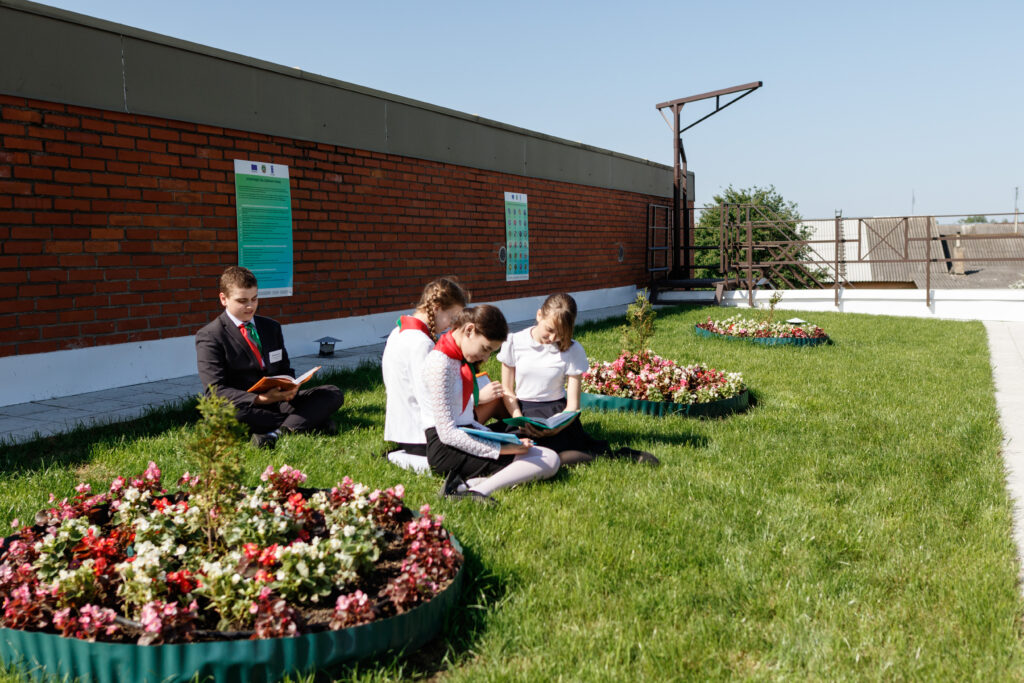 A high school in the town of Marjina Horka recently installed a green roof
A high school in the town of Marjina Horka recently installed a green roof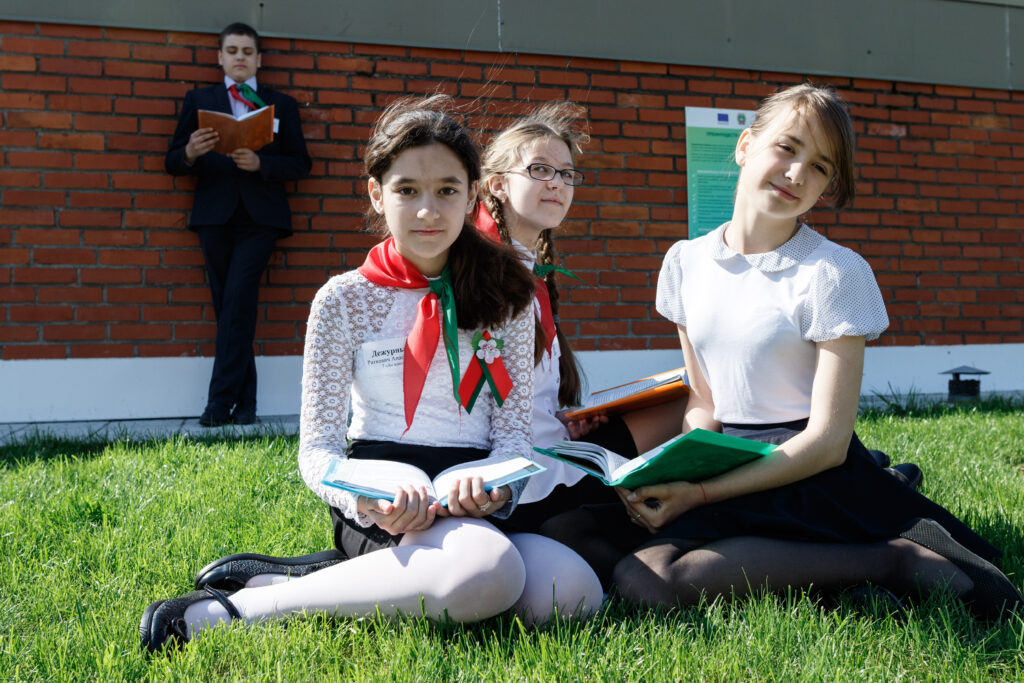 A high school in the town of Marjina Horka recently installed a green roof
A high school in the town of Marjina Horka recently installed a green roof
Throughout the year, this roof provides oxygen to 100 people, it absorbs dust and harmful gases from the environment, and in winter it provides passive thermal insulation. “In fact, we are the first to make an industrial building in Belarus ‘green’; it was a big challenge for design organisations, state expert bodies and builders,” explained Dubovik.
Paper production from recovered materials
It is now possible to buy office paper from recovered materials in Belarus. This initiative, with a budget of €860,000, was implemented at the ‘Paper Mill’ of Goznak in Barysaŭ.
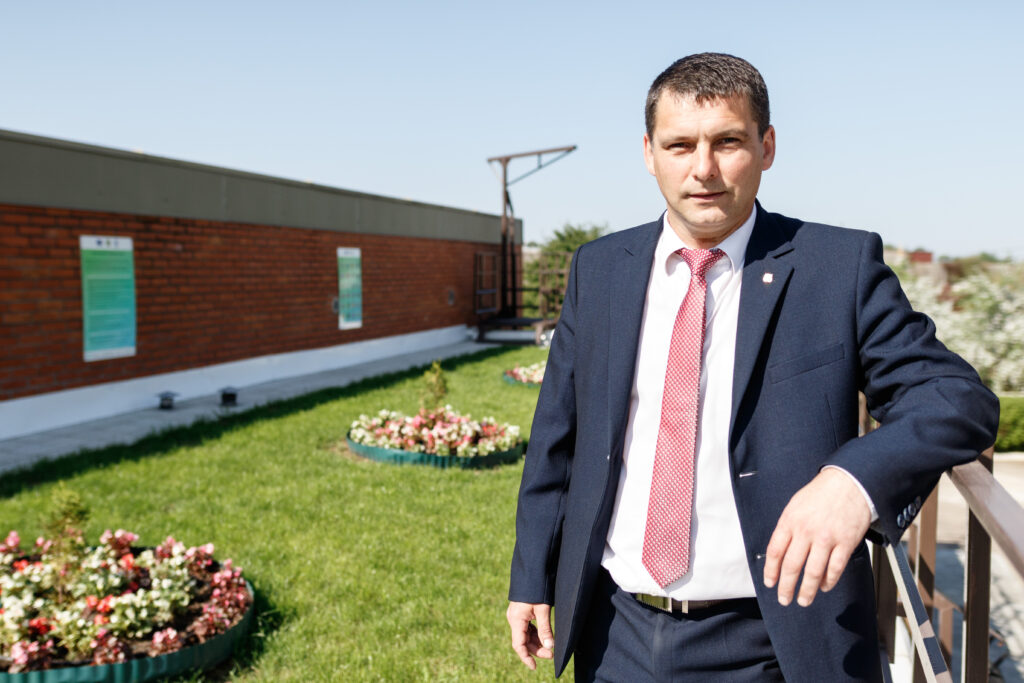 Mikhail Dubovik, Chairman of the Public Association “Puchavicki kraj”
Mikhail Dubovik, Chairman of the Public Association “Puchavicki kraj”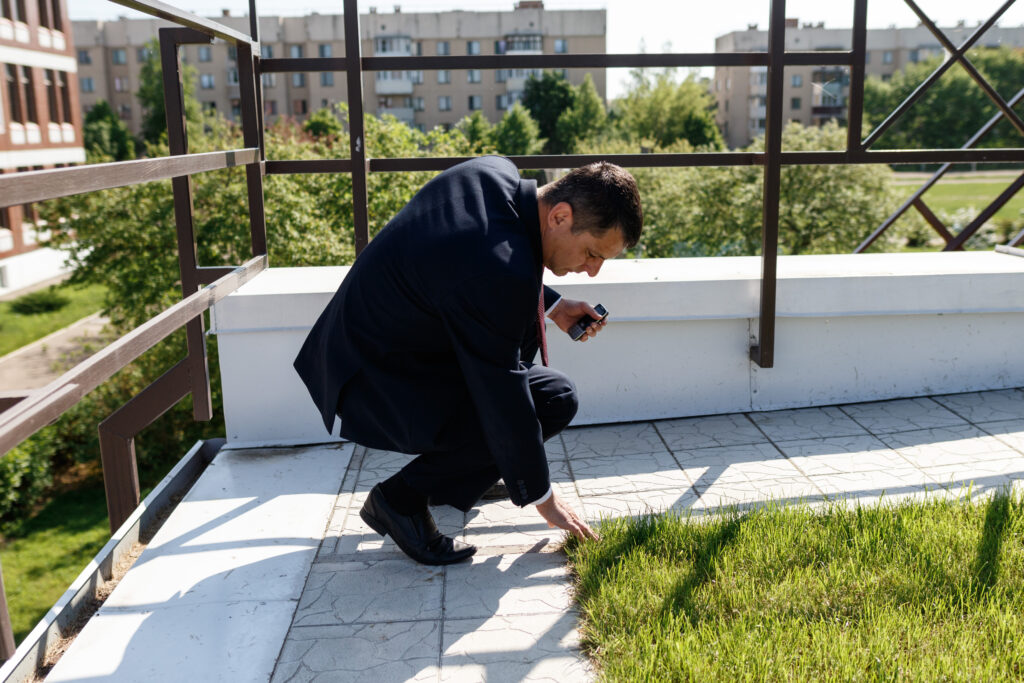 Mikhail Dubovik, Chairman of the Public Association “Puchavicki kraj”
Mikhail Dubovik, Chairman of the Public Association “Puchavicki kraj”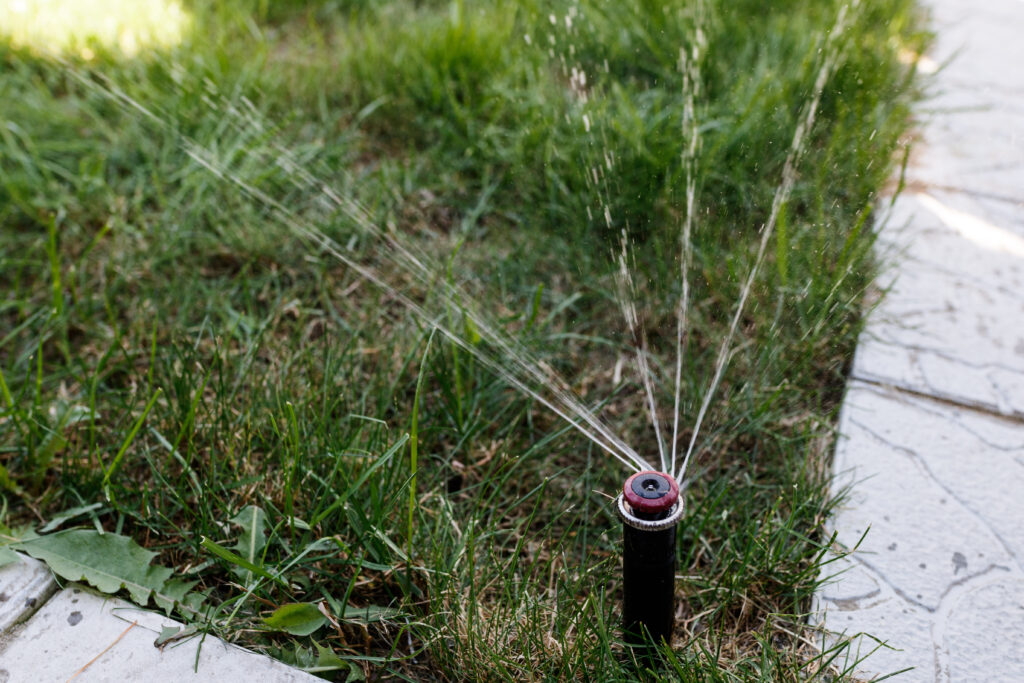 Green roof at high school in the town of Marjina Horka
Green roof at high school in the town of Marjina Horka
“As a commercial enterprise, which receives no funding from the state, we’re very interested in the expansion of the product range and improving economic efficiency”, said Aliaksiej Kashyn, Deputy Chief Engineer at the paper mill. “We were interested in recycling waste paper for a long time, some time before we purchased simple equipment for those needs, but as soon as we learned about the EU initiative, we immediately filed an application.”
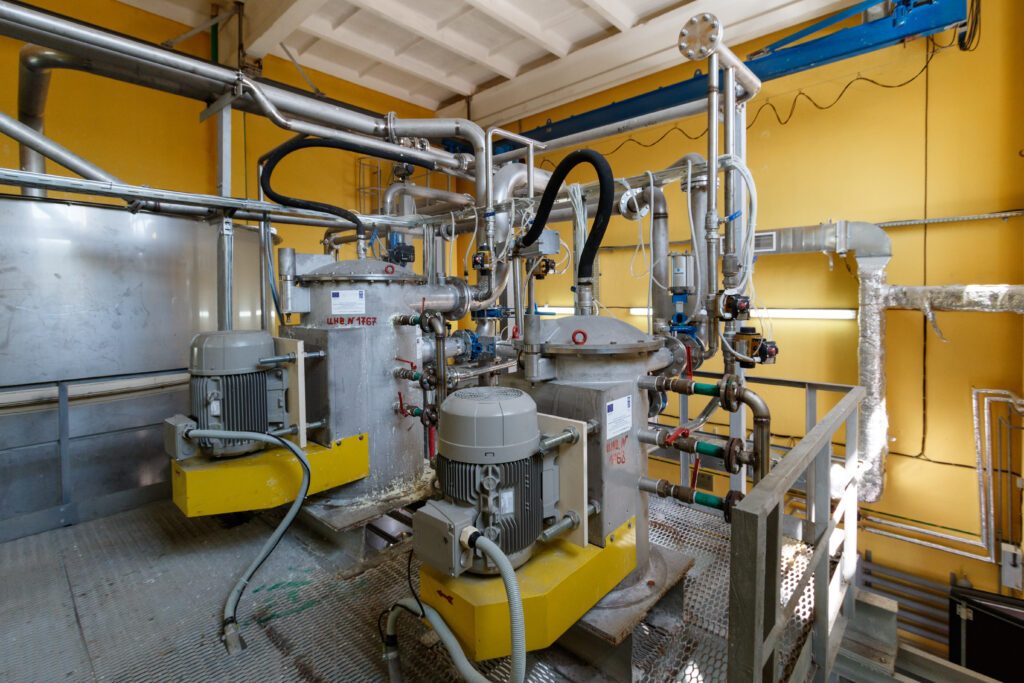 Inside the “Paper Mill” factory
Inside the “Paper Mill” factory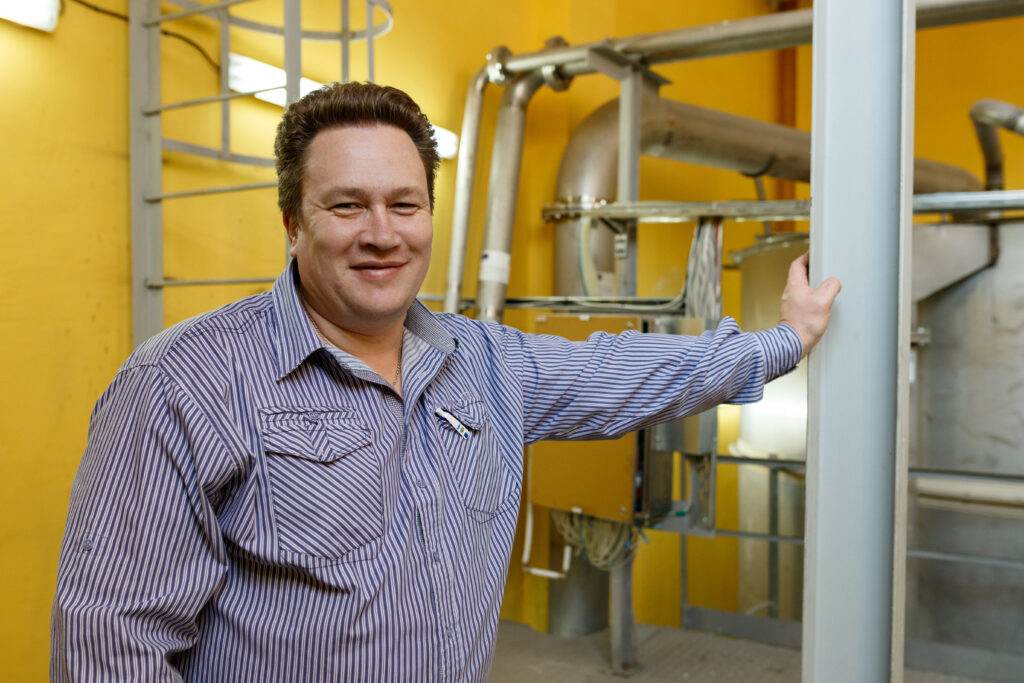 Aliaksiej Kashyn, Deputy Chief Engineer at the “Paper Mill”
Aliaksiej Kashyn, Deputy Chief Engineer at the “Paper Mill”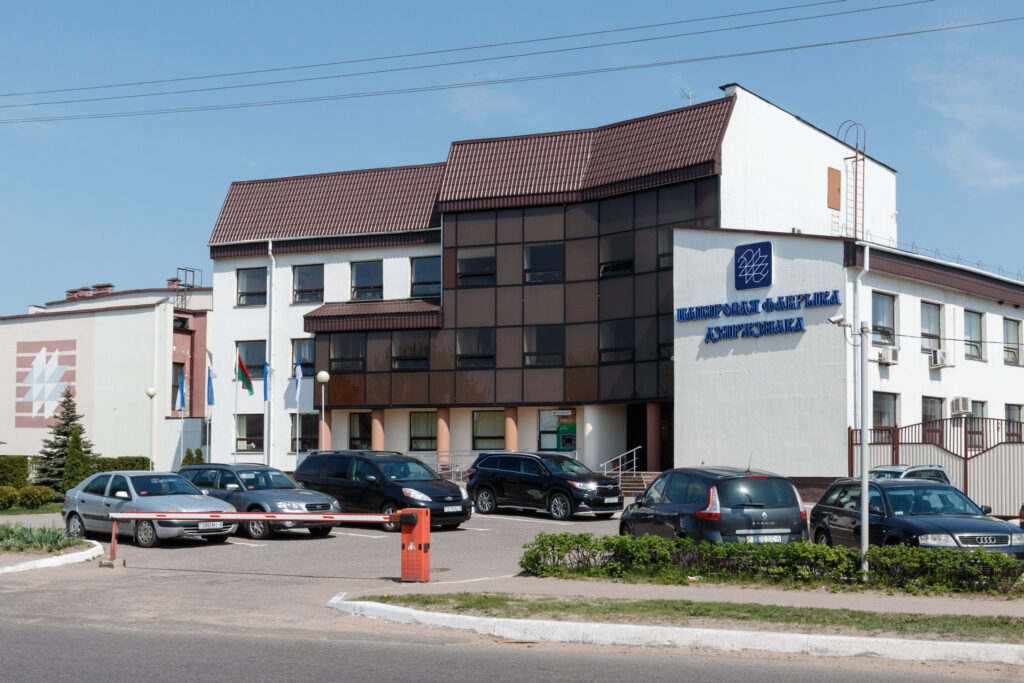 “Paper Mill” enterprise in Barysaŭ
“Paper Mill” enterprise in Barysaŭ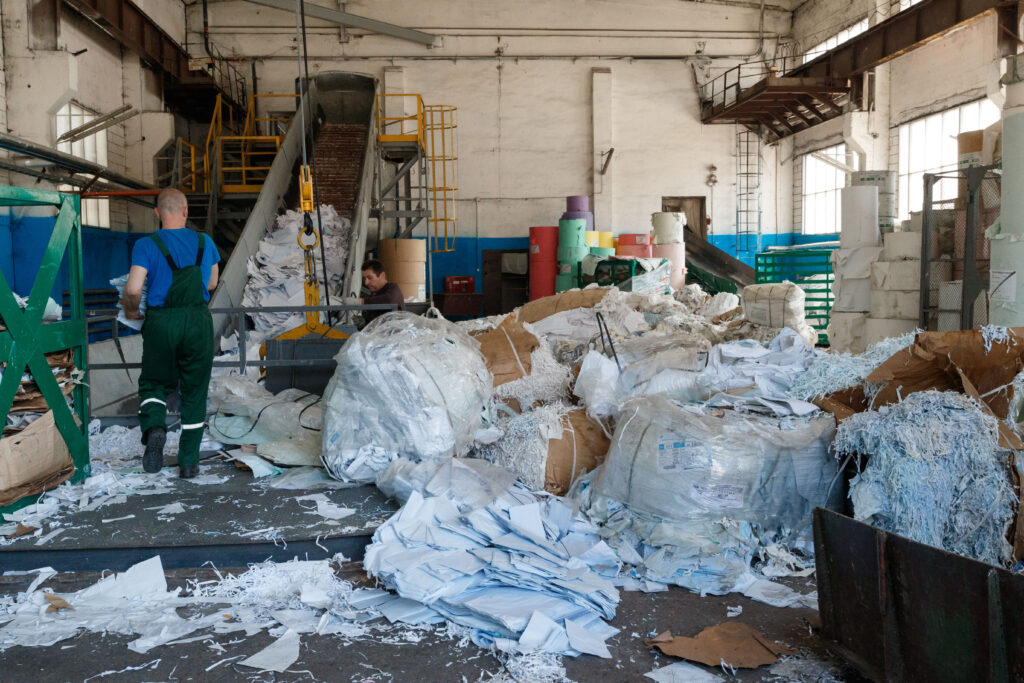 Inside paper recycling enterprise in Barysaŭ
Inside paper recycling enterprise in Barysaŭ
As a result, after having installed Italian equipment, about 35% of pulp will be replaced with recycled paper. The reduction in raw material costs will be about €800,000 per year. We will be able to save a further €17,000 thanks to the energy efficiency of the new equipment purchased with EU support.
“Typically, waste paper is processed into low-quality wrapping paper. Our high-tech processes allow us to produce white paper”, explained Kashyn.
Environmentally safe antifreeze
Coolants used by car owners are usually extremely toxic. If soil is exposed to antifreeze, then for a number of years nothing will grow there. Unexpectedly, “Gomelchimtorg” found a solution to the problem.
“At one of the meetings, the director put a bottle of cloudy liquid on the table and explained that this was a new environmentally friendly antifreeze, made using innovative technologies on the basis of a different component”, said Jauhien Zujeu, Director of the institution “Promoting business development”, who implemented the initiative.
“Our antifreeze is almost completely harmless. We even tested it by watering a shrub with the product and nothing happened; it continued to grow healthy. Normal antifreeze is poisonous to nature; however there are no strict requirements for its disposal”, he explained.
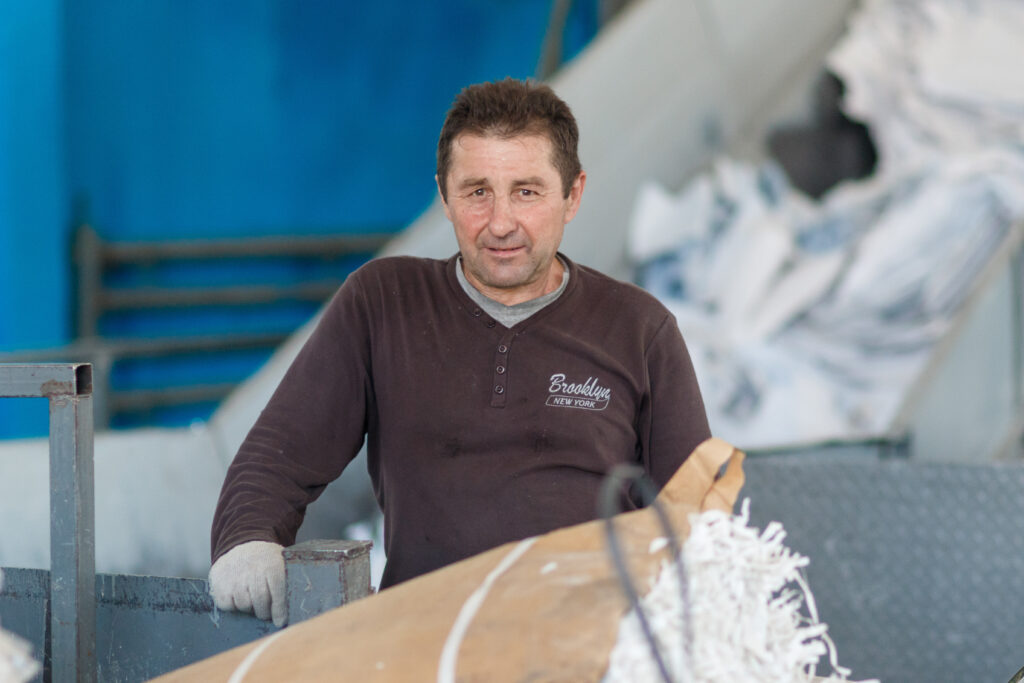 Paper recycling process
Paper recycling process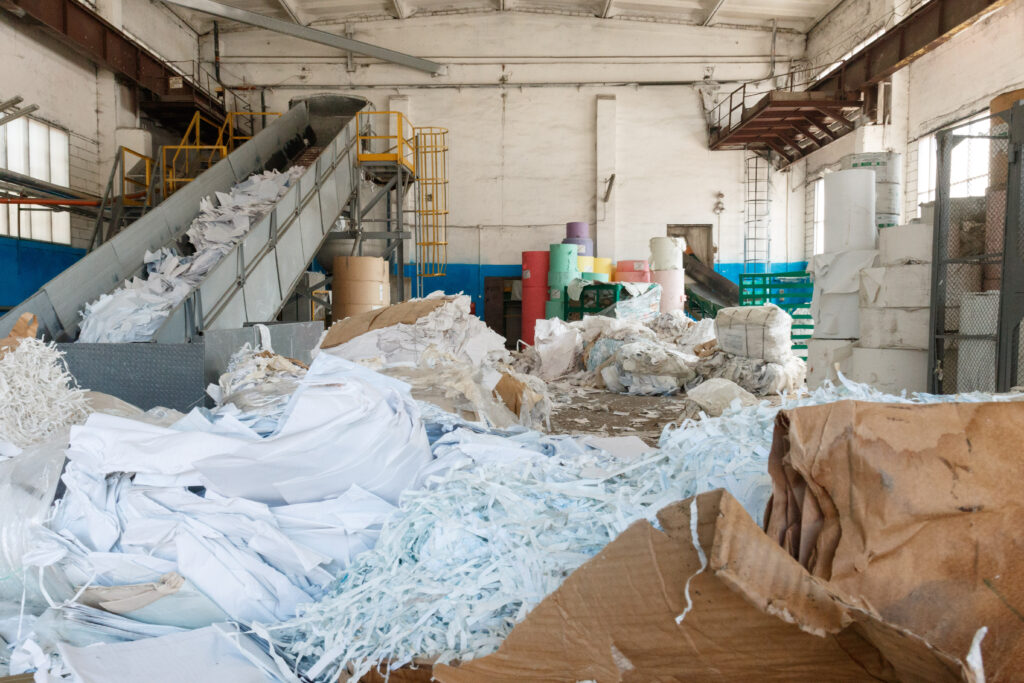 Paper recycling process
Paper recycling process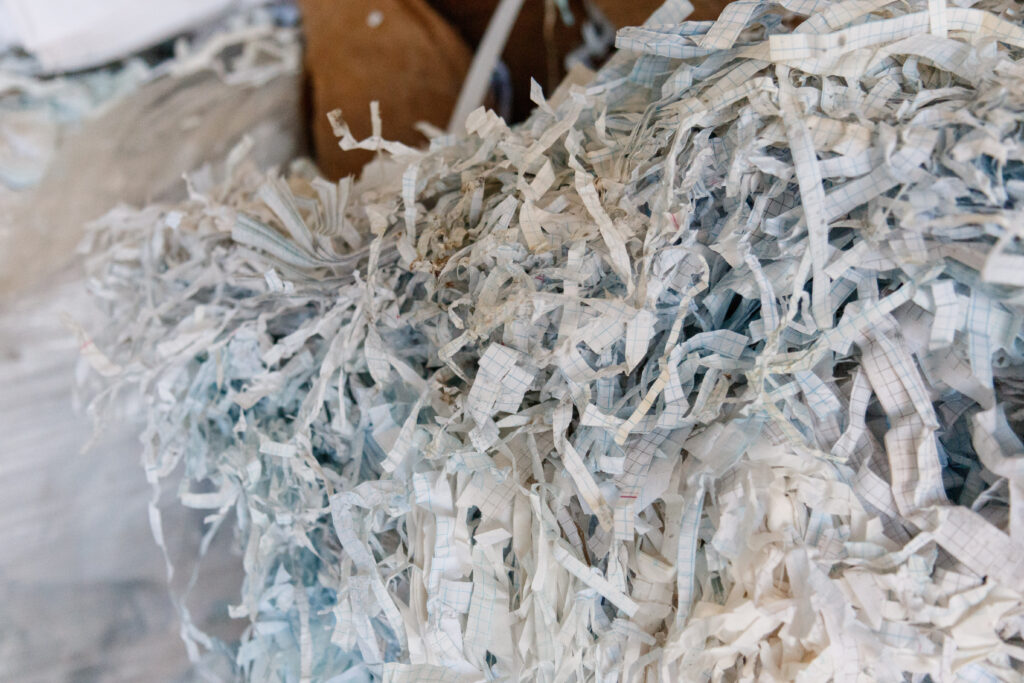 Paper recycling process
Paper recycling process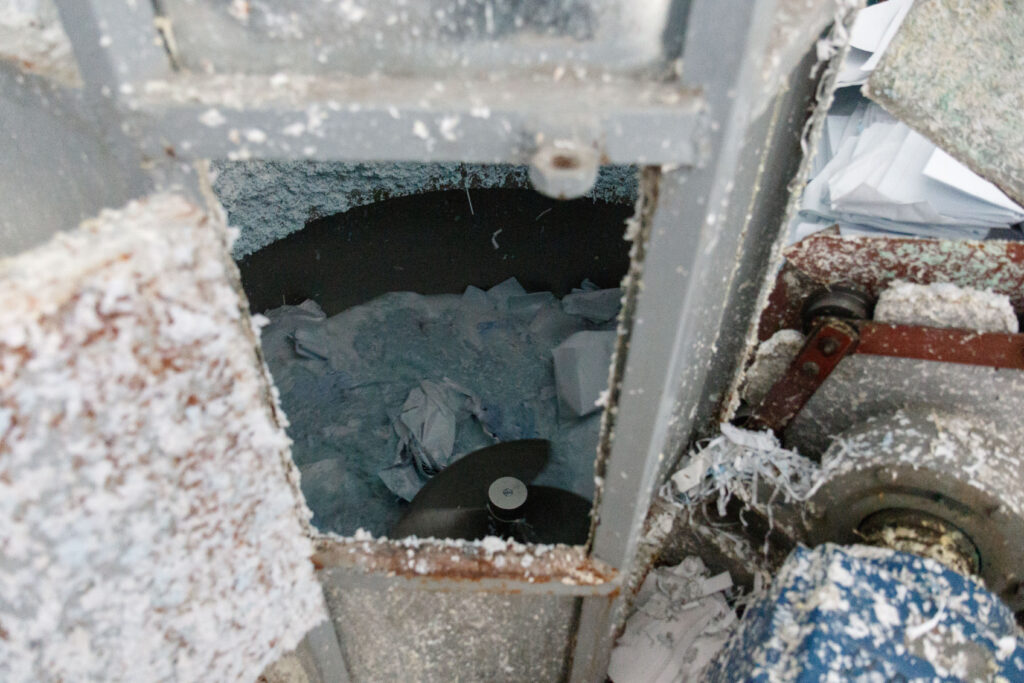 Paper recycling process
Paper recycling process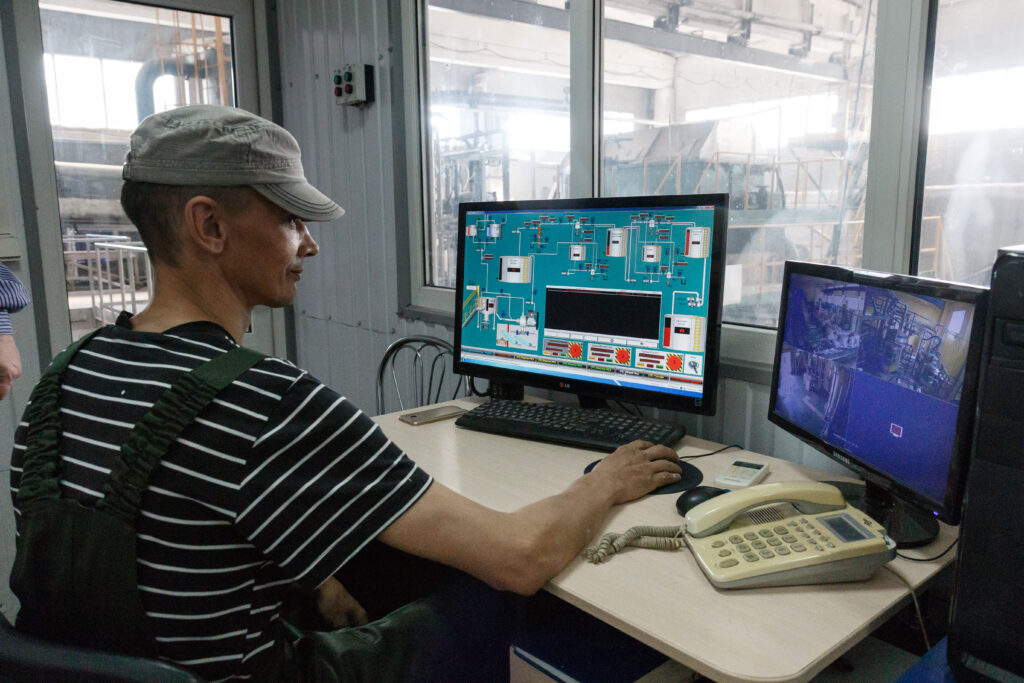 Paper recycling process
Paper recycling process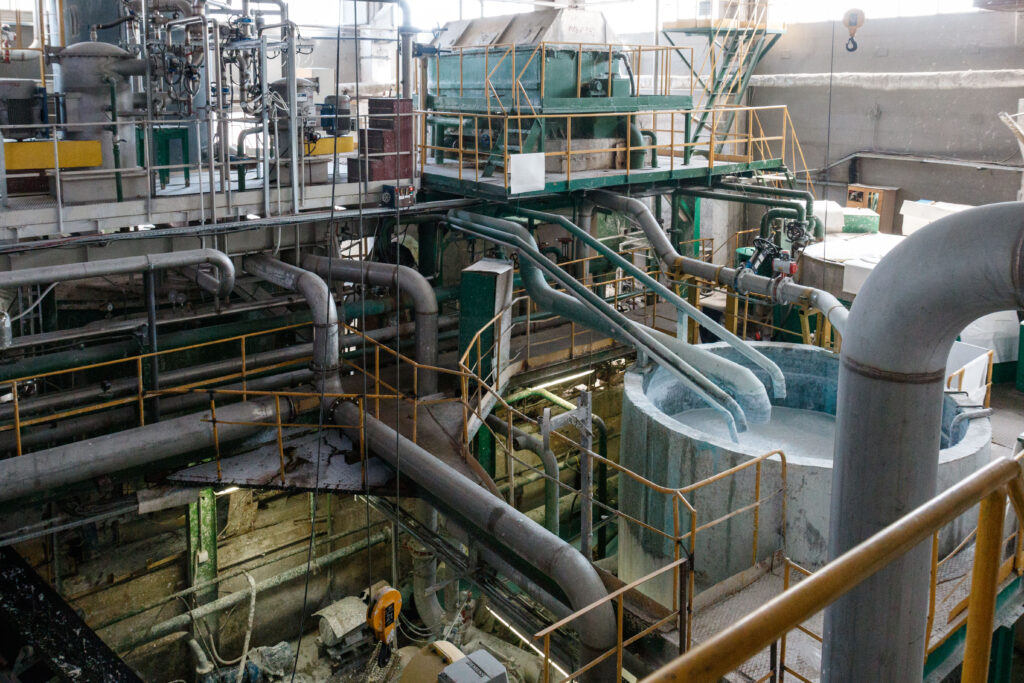 Paper recycling process
Paper recycling process
In the framework of the project, new equipment has been bought for “Gomelchimtorg”, new jobs have been created, and production volume at the first stage will be 1,000 tons per year.
“Actually, 1,000 tons is only the first step. We plan to increase production significantly, as we are seeing positive feedback. It’s nice when people who know about our initiative are surprised that Belarus can develop such technological know-how.”
Many such initiatives are local in their character, but the growing interest in developing green economy throughout the country is inspiring. Increasingly, green approaches appeal not just to NGOs, but to the private sector, and even state institutions are catching on to the trend. At the end of 2016, the National Action Plan on Green Economy Development till 2020 was adopted. Given this commitment and the EU support, it looks as the green approach will gradually start winning over old business methods in the country.
Author: Anton Radniankou
Article published in Belarusian by Ideaby.org
MOST READ
SEE ALSO

No, time is not on Russia‘s side
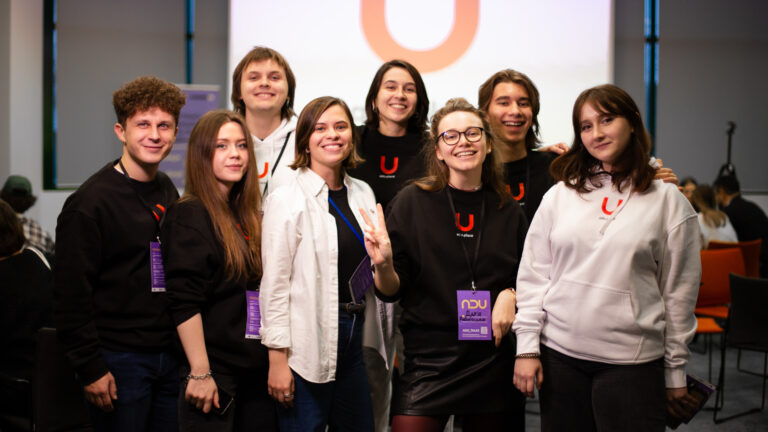
Great opportunities even if you have no money: what the EU offers Belarusian teachers and students

Be one step ahead of a hacker: check simple cybersecurity tips!

Rhisoma Lab: the intercultural hub for creatives in Tbilisi

How to act and move on: strategies for women facing discrimination and online harassment
More campaign pages:
Interested in the latest news and opportunities?
This website is managed by the EU-funded Regional Communication Programme for the Eastern Neighbourhood ('EU NEIGHBOURS east’), which complements and supports the communication of the Delegations of the European Union in the Eastern partner countries, and works under the guidance of the European Commission’s Directorate-General for Neighbourhood Policy and Enlargement Negotiations, and the European External Action Service. EU NEIGHBOURS east is implemented by a GOPA PACE-led consortium. It is part of the larger Neighbourhood Communication Programme (2020-2024) for the EU's Eastern and Southern Neighbourhood, which also includes 'EU NEIGHBOURS south’ project that runs the EU Neighbours portal.

The information on this site is subject to a Disclaimer and Protection of personal data. © European Union,







